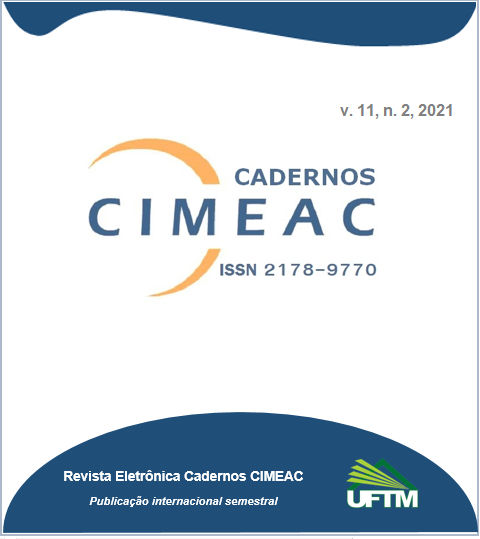Rural teachers and social movements under formation: political struggles for rural schools in northwestern Rio de Janeiro state
DOI:
https://doi.org/10.18554/cimeac.v11i2.5954Resumen
Closing rural schools is a scene that has become usual in many Brazilian states, a fact that forces rural communities to quit life in the country as the place for both living and existence reproduction. Rural schools in Northwestern Rio de Janeiro State take the same path of other Brazilian realities; in other words, they are the victims of activity canceling, which is an injustice supported by economic arguments. However, the implementation of the course named Interdisciplinary Major Degree in Rural Education, also known as LEdoC, at Fluminense Federal University (UFF), in Santo Antônio de Pádua City, RJ, opened room for a whole series of popular movements to cope with the rural exodus reality. Accordingly, the aim of the present study is to describe the path opened between 2015 and 2019 by UFF’s LEdoC and Santo Antônio de Pádua’s community for the Alternation Pedagogy in order to defend rural schools, based on the research-action methodology. The main results have highlighted the importance of the research-action methodology to reinforce the local demands and the process of reporting the alienation of rural populations from their right to education. Moreover, they have pointed towards the fact that popular social movements reinforce rural teachers’ formation by repairing public policies to question oppression situations in and outside education institutions.
Descargas
Publicado
Número
Sección
Licencia
Os autores que publicam nesta revista concordam com os seguintes termos:
(a) Não cobramos dos autores para a publicação neste periódico.
(b) Autores mantém os direitos autorais e concedem à revista o direito de primeira publicação, com o trabalho simultaneamente licenciado sob a Licença Creative Commons que permite o compartilhamento do trabalho com reconhecimento da autoria e publicação inicial nesta revista.
(c) Autores têm permissão e são estimulados a difundir e a distribuir a versão publicada de seu trabalho online (ex.: em repositórios institucionais ou na sua página pessoal) após o processo editorial, já que isso pode aumentar o impacto e a citação do trabalho publicado (Veja O Efeito do Acesso Livre).
* * *
AUTHORS COPYRIGHT AND PUBLISHING RIGHTS
Authors who publish with this journal agree to the following terms:
(a) This journal does not charge authors for publication.
(b) Authors retain copyright and grant the journal right of first publication with the work simultaneously licensed under a Creative Commons Attribution License that allows others to share the work with an acknowledgement of the work's authorship and initial publication in this journal.
(c) For authors whose articles have been accepted: authors are permitted and encouraged to post their work online (e.g., in institutional repositories or on their website) after the publication of the text in Cadernos CIMEAC, as it can lead to productive exchanges as well as earlier and greater citation of published work (See The Effect of Open Access).

 10.18554/cimeac
10.18554/cimeac

